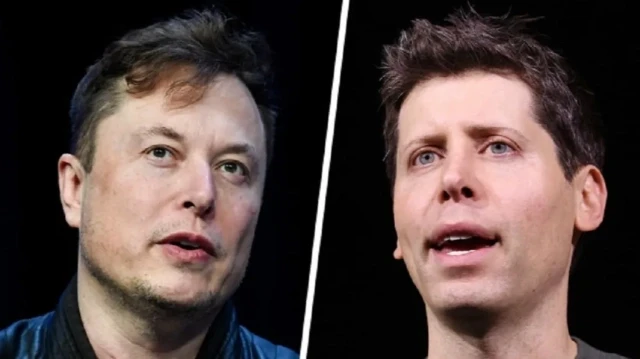
Philosophy professor warns brain–computer interfaces, AI implants, genetic interventions and ‘mind uploading’ need ethics framework to avoid risks
Billionaires and artificial intelligence (AI) firms' executives, ChatGPT-maker OpenAI CEO Sam Altman and Tesla founder Elon Musk, are leading projects to implant artificial intelligence (AI) and biotechnology into the human body, a philosophy professor told Anadolu on Thursday, warning that ethical safeguards are critical to avoid "dehumanization."
Altman is preparing to launch Merge Labs, a brain-computer interface startup, according to the Financial Times, which will compete directly with Musk's Neuralink.
Ahmet Dag, a professor at Türkiye’s Bursa Uludag University, said these projects aim to transcend human biological limits by enhancing mental, physical, and psychological capabilities.
Dag noted that Ray Kurzweil, a former Google engineer, initiated much of the theoretical and practical debate on “transhumanism” years before Musk and Altman entered the field.
“Technological singularity, which came to the fore with Musk’s Neuralink in 2021, seeks to transfer human consciousness to machines through brain–computer interfaces and implants,” he said. “Sam Altman’s involvement in this new initiative shows that this tech is going to transform health care and education, but it will also bring about global economic and social shifts.”
Dag emphasized that transhumanism’s motivation is the human desire to constantly push boundaries and build new forms of existence.
“Conditions like illness, aging, and death are sought to be overcome with these technologies—it will be possible to cure paralysis or eliminate conditions like Alzheimer’s, and such, with implants and biotechnical interventions,” he said.
“They (advocates for transhumanism) believe that it is possible to reach immortality by transferring consciousness into machines—this technology is believed to play a key role in solving global crises like climate change, epidemics, and famine, but these projects will also give rise to new social, ethical, and cultural debates,” he added.
He warned that brain–computer interfaces, AI implants, genetic engineering, and mind uploading could fundamentally alter what it means to be human.
“If these projects come to fruition, even partially, the organic nature of humans and concepts like consciousness, identity, free will, freedom, and equality will come into question,” he said.
Drawing parallels with ancient myths, Dag said: “Prometheus’ taking of fire and Gilgamesh’s quest for immortality tell us the stories of human desire to transcend limits—this desire brought about the Age of Enlightenment and the desire to dominate nature.”
He added: "Meanwhile, industrialization completely changed human labor and lifestyle in the 20th century, while computers and digitalization contributed to the efforts to integrate the human mind with technology."
Dag called the transhumanism debate one of the most radical turning points in modern history, with risks of reducing humans to “mere technological devices.”
He emphasized that humans are more than biological bodies or cognitive machines but also cultural and metaphysical beings.
“These transhumanist projects view humans and life in material terms, but humans and life are multi-layered,” he said. “If this multi-layeredness is ignored and humans are treated as functional and optimizable organisms, this may bring about the danger of ‘dehumanization,’ which refers to the loss of true and essential values.”
"However, it is not possible to deny that these technologies can offer serious education and health benefits, as well as functionality in fighting against economic and global crises," he noted. "It is key for these technologies to be guided and managed within a justice, ethics, equality, and dignity framework—if left to market dynamics and the interests of those who monopolize power, humanity can be under great risk."
Dag concluded that technological singularity could liberate humanity if developed under justice, ethics, equality, and dignity frameworks—but without them, it could enslave humanity.
“The real issue is not, however, how far in the horizon technology can reach, but what kind of values these horizons allow for,” he said.







